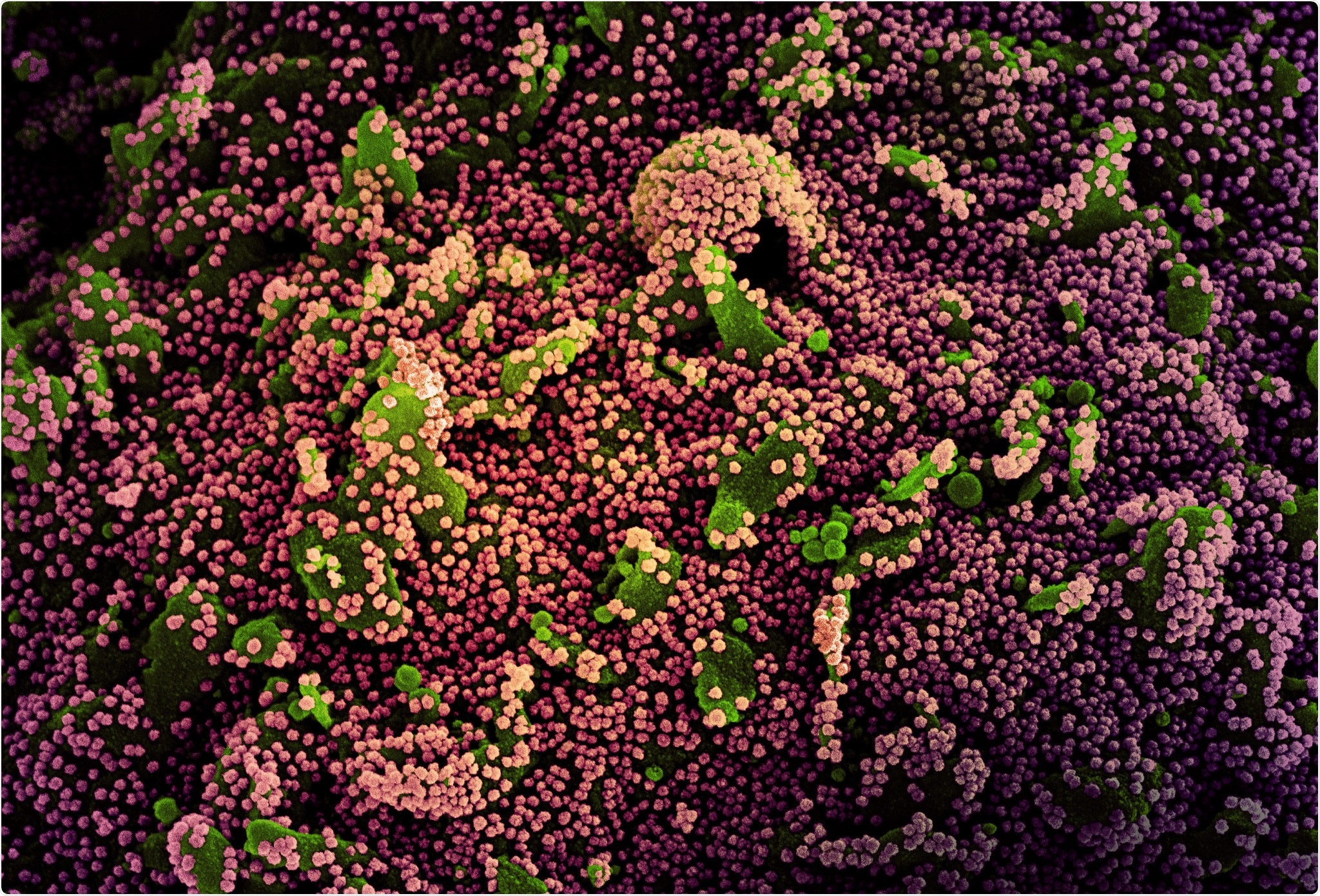Researchers in the United States have conducted a study demonstrating the real-world effectiveness of the Pfizer-BioNTech and Moderna coronavirus disease 2019 (COVID-19) vaccines at preventing infection with severe acute respiratory syndrome coronavirus 2 (SARS-CoV-2).
Importantly, Mark Thompson from the CDC COVID-19 Response Team and colleagues also showed that the vaccines were highly effective at reducing viral load, febrile symptoms, and the duration of illness among individuals who developed breakthrough infections despite having been vaccinated.
The large prospective study of almost 4,000 people found that full vaccination (with two doses) was 91% effective at preventing SARS-CoV-2 infection, while partial vaccination (with one dose) was 81% effective.
Among those who became infected, partially or fully vaccinated individuals had a lower level of viral RNA, a lower risk of developing febrile symptoms and a reduced duration of illness compared with unvaccinated individuals.
The researchers say that if further data confirm that these vaccines reduce the viral load and, in turn, blunt the infectivity of SARS-CoV-2, this would suggest that the vaccines are not only highly effective at preventing infection, but could also reduce the impact of breakthrough infections.
This has significant implications for essential and frontline workers, given their potential to spread the virus through frequent close contact with patients, co-workers, and the public, says Thompson and colleagues.
A pre-print version of the research paper is available on the medRxiv* server, while the article undergoes peer review.
The potentially important secondary benefits of mRNA-based COVID-19 vaccines
The messenger RNA- (mRNA) based vaccines developed by Pfizer-BioNTech (BNT162b2) and Moderna (mRNA-1273) have been shown to be highly effective in preventing symptomatic COVID-19 in Phase III clinical trials.
Thompson and colleagues also recently reported interim estimates of effectiveness that showed similar benefits following the administration of mRNA-based vaccines in real-world conditions.
However, “less is known about the potentially important secondary benefits of mRNA COVID-19 vaccines, including reductions in severity of disease, viral RNA load, and duration of viral RNA detection,” says the team.
What did the researchers do?
Now, Thompson and colleagues have analyzed prospective cohorts of 3,975 healthcare personnel, first responders, and other essential and frontline workers across eight locations in the United States who completed weekly SARS-CoV-2 testing between December 14th, 2020, and April 10th, 2021.
The researchers estimated the efficacy of partial and full vaccination in preventing SARS-CoV-2 infection and compared the viral RNA load of vaccinees who had breakthrough infection with that of unvaccinated infected participants. The team also compared the frequency of febrile symptoms and the duration of COVID-19 between the vaccinated and unvaccinated groups.
Participants self-collected a mid-turbinate nasal swab on a weekly basis, irrespective of whether they had COVID-19-like symptoms. Individuals who developed COVID-19 like illness also collected a further nasal swab and saliva specimen at symptom onset.
Samples were tested for SARS-CoV-2 infection using qualitative and quantitative reverse-transcription–polymerase-chain-reaction (RT-PCR). Vaccine efficacy was estimated for full vaccination (14 days or more following a second dose) and partial vaccination (14 days or more following one dose or up to 13 days following a second dose).
Vaccinated individuals had received either Pfizer-BioNTech’s BNT162b2 vaccine or Moderna’s mRNA-1273 vaccine and efficacy was calculated following adjustment for location, occupation and local virus circulation.
What did the study find?
The number of participants who had RT-PCR-confirmed SARS-CoV-2 infection was 204 (5.1%), 16 of whom were partially or fully vaccinated and 156 of whom were unvaccinated.
Vaccination status was indeterminate (less than 14 days since the first dose) for 32 individuals who were therefore excluded from the study.
The estimated effectiveness of vaccination at protecting against SARS-CoV-2 infection was 91% for full vaccination and 81% for partial vaccination.
Of the participants who became infected, the mean viral RNA load (Log10 copies/mL) detected was 2.3 among partially or fully vaccinated participants, compared with 3.8 among unvaccinated participants.
An adjusted analysis represented a 40.2% lower viral RNA load following at least partial vaccination.
Only 25% of at least partially vaccinated individuals reported febrile COVID-19–like illness, compared with 63.1% of unvaccinated individuals.
This represented a 58% reduction in the relative risk of febrile COVID19–like symptoms after at least partial vaccination.
Vaccinated participants also reported 6.4 fewer days of feeling ill than unvaccinated participants.
What are the study implications?
The researchers say the estimates of vaccine effectiveness reported here in the real-world setting are consistent with findings from clinical trials.
They also say the combination of virologic and clinical effects is consistent with previous reports of a lower quantity and duration of viral RNA detection and milder COVID-19 following mRNA-based vaccination.
“If further data confirm that mRNA vaccination reduces the number of viral RNA particles and the duration of detection and this in turn blunts the infectivity of SARS-CoV-2, then mRNA vaccines are not only highly effective in preventing SARS-CoV-2 infection, but they may also mitigate the impact of breakthrough infections,” says the team.
“This is especially important to essential and frontline workers given their potential to transmit the virus through frequent close contacts with patients, co-workers, and the public,” concludes Thompson and colleagues.
*Important Notice
medRxiv publishes preliminary scientific reports that are not peer-reviewed and, therefore, should not be regarded as conclusive, guide clinical practice/health-related behavior, or treated as established information.
https://ift.tt/3cprYRL
Health
Bagikan Berita Ini















0 Response to "New data from CDC on effectiveness of Pfizer and Moderna COVID-19 vaccines - News-Medical.Net"
Post a Comment